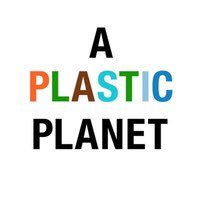
A Plastic Planet
@aplastic_planet
Followers
34K
Following
5K
Media
4K
Statuses
32K
A Single Goal - to ignite and inspire the world to Turn Off the Plastic Tap.
London, England
Joined February 2017
We have made the decision to close down our Twitter (X) account. Please join us on our journey to inspire and ignite the world to turn off the plastic tap on LinkedIn: A Plastic Planet: https://t.co/3D7JQRkA1E PlasticFree:
0
1
5
The Health Scientists’ Global Plastics Treaty is our generation’s Magna Carta. Yesterday, experts gathered to demand US action to protect human health from plastic: https://t.co/NbWiasBWZ8
@Sea_Legacy @cmittermeirer @jmuncke @leotrasande @project_descend @cmuffett1
1
1
4
Another #SachetTheSachet win! Northern Ireland has joined the EU in banning sachets. When will the rest of the UK catch up? https://t.co/rxsm75WVen
telegraph.co.uk
New EU net-zero laws on packaging waste will also see plastic shrink wrap and sauces in plastic sachets prohibited under Windsor Framework
1
5
7
“Change is coming – and it will be spurred on by the emergence of legislative pressures.” In her latest interview, our co-founder, Frederikke Magnussen, shared her insights on solving the plastic crisis and, in turn, conserving the ocean. https://t.co/U5PxVbe9aW
boatinternational.com
A Plastic Planet co-founder Frederikke Magnussen gives her insight on the plastic crisis ahead of Ocean Talks 2024.
0
0
3
Scientists have unearthed evidence of microplastic contamination within archaeological remains. Whether it’s affecting our environment, health or history, the scientific evidence points to the ticking toxic bomb of plastic that demands urgent attention. https://t.co/ZSjUQ8Tw3U
york.ac.uk
Researchers have for the first time discovered evidence of microplastic contamination in archaeological soil samples.
0
1
1
The PlastChem report has just landed. This comprehensive report explores the realm of plastic chemicals, outlining the current scientific landscape and providing evidence-based policy recommendations. Read the full report here: https://t.co/8o30HF45ya
0
2
4
“Imagine a system where nothing is reaching the bin and where it is hyper convenient for the consumer. Now imagine this at scale." @siansutherland took the stage at the #OceanSummit to share insights on revolutionising packaging systems with Reposit.
0
0
3
Plastic is a ticking time bomb for our health. A new study reveals that over half of arterial disease patients’ blood vessels are contaminated with microplastics, increasing their likelihood of stroke, heart attack, or premature death. https://t.co/OPCodwc0a8
theguardian.com
Scientists link tiny particles in blood vessels with substantially higher risk of death
0
4
7
2️⃣ Report makes case for legal action over “fraud of plastic recycling”: https://t.co/Aqigd6NnDp
1
0
1
Last month’s plastic news round-up. 👇 Check out our views on the top stories from February as we forge a post-plastic future. #plasticnews #turnofftheplastictap #plasticpollution
1
1
3
Some great news – ketchup sachets and plastic wrapping on fruit and vegetables may be banned under new EU deal. Now we call on the UK Government to replicate this move in Britain. Read the story below. https://t.co/tYrNSOOBsr
irishexaminer.com
The agreement has brought in other measures including a ban on single-use plastics in catering by 2030
0
2
9
The carbon footprint of plastic is 30% higher than we thought. With influence from the fossil fuel industry blocking the Global Plastics Treaty negotiations, we must prioritise solutions grounded in science, rather than succumb to a fossil-fuelled treaty. https://t.co/f5kCS74ln5
renewable-carbon.eu
For years, the life cycle assessment community has been discussing how to make a fair comparison between products made from crude oil and those made from biomass, from Carbon Capture and Utilisation...
0
7
6
Californians have thrown away more plastic bags, by weight, than when first banned in 2014. With the plastic bags only ever used for a matter of minutes, ‘Bag for Life’ is a misnomer and must be banned from our checkouts altogether. https://t.co/b5hZlNK1cn
nytimes.com
A ban on single-use bags included an exemption for bags meant to be reused and recycled. Except, they weren’t. New legislation aims to fix that.
0
3
1
Assumptions rarely hold true, especially when it comes to recycling practices. “100% recycled” labels may not be entirely accurate under a new European Commission proposal for calculating recycled content. https://t.co/i0m6xlOY71
politico.eu
The EU executive suggests laxer rules for calculating recycled content in products, siding with the chemical industry.
0
0
2
The plastic industry has been caught red-handed. 🚨 A report by the @climatecosts has revealed that for over 30 years, plastics companies knew that recycling wasn’t a viable solution for managing plastic waste. https://t.co/NidLvZXQkj
theguardian.com
Companies knew for decades recycling was not viable but promoted it regardless, Center for Climate Integrity study finds
0
5
5
It’s about time - New York City is on the verge of banning laundry detergent pods that contain plastic. The ‘Pods are Plastic Bill’ will restrict homecare products containing polyvinyl alcohol, also known as PVA or PVOH, by 2026. https://t.co/pZ0zt2YbfK
bloomberg.com
Laundry and dishwasher detergent pods made with polyvinyl alcohol, or PVA, contribute to plastics pollution in US waterways.
0
0
3
New report finds plastic is costing the US $250 billion a year in healthcare costs. This study is just another example of why plastic is no longer worth the risk to our health, or the economy. Read more here:
thehill.com
Chemicals leaching from plastics are leaving Americans notably sicker and poorer, according to a new study. In 2018 alone, the hormone-disrupting effects of plastics in the nation’s food and …
0
6
14
New study finds microplastics in soil have risen sharply in the past 50 years, thanks to fertilisers. Let’s connect the dots: from soil to our food, microplastics end up in our bodies. https://t.co/kBx6dtquWc
newscientist.com
Soil samples from a long-running UK experiment show that microplastic pollution has risen sharply in the past 50 years and is much higher in fields treated with organic or inorganic fertilisers
0
2
1












